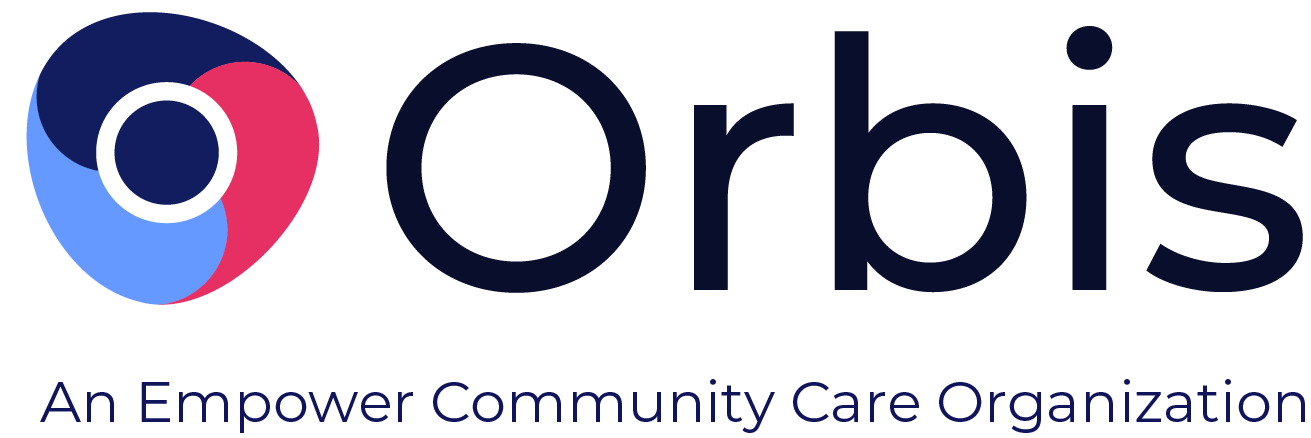Effective methods for behavioral change are at the heart of the criminal justice and human services systems. Two critical approaches are Motivational Interviewing and Cognitive Behavioral Therapy.
Motivational Interviewing (MI) and Cognitive Behavioral Therapy (CBT) drive transformative change through illuminated pathways to rehabilitation and growth. This blog will dig deeper into the principles behind these evidence-based methods and how they can foster positive change for individuals and their communities.
The Power of Motivational Interviewing: Principles and Techniques
Motivational Interviewing is a client-centered approach and communication style designed to strengthen motivation for people who need to make behavioral changes in their lives – including adults and youth. It is used across a broad range of human services, including justice, child welfare, substance use treatment, and other behavioral health contexts.
Motivational Interviewing roots itself in four fundamental principles (express empathy, develop discrepancy, roll with resistance, and support self-efficacy) across four phases of change: engaging, focusing, evoking, and planning.
- Express Empathy: People often hesitate to seek help due to concerns about judgment or guilt about their behaviors. However, Motivational Interviewing prioritizes understanding the client's perspective rather than making evaluative judgments.
- Develop Discrepancy: Individuals tend to grow more and are inclined to change when they recognize the disparity between their current and desired state of being. Practitioners uncover these discrepancies and help clients pinpoint their values and goals for change.
- Roll with Resistance: Change is rarely linear as people tend to fluctuate in their decision to alter behaviors or adopt a new lifestyle. Instead of challenging or criticizing, practitioners reframe situations and offer alternative interpretations to foster a client's renewed sense of self-understanding.
- Support Self-Efficacy: In Motivational Interviewing, practitioners boost clients' self-efficacy by affirming their ability for desired changes, guiding them through the change process, acknowledging positive strides, and providing ongoing encouragement, even when their confidence initially lags the therapist's belief in their potential.
Check out this MI fact sheet for a quick overview of Motivational Interviewing.
Motivational Interviewing Techniques
How do practitioners bring Motivational Interviewing principles into practice? First, there are four basic interviewing methods or techniques that are used.
#1 – Asking Open-Ended Questions
Open-ended questions require more than a straightforward "yes" or "no" response, prompting deeper reflection on a subject. These inquiries typically begin with words like "how" , "what" or “Tell me more” and allow therapists to gain further insights into the individual.
Examples include questions:
- "How would you like things to change?"
- "What strategies have you previously tried when striving for change?"
- "What can you tell me about your friendships at school?"
#2 – Providing Affirmations
Affirmations acknowledge an individual's strengths and recognize their positive actions. When delivered effectively, affirmations can boost a person's confidence in their capacity for change.
Illustrative affirming statements could include statements such as:
- “You managed that situation well.”
- “It took courage to share that with me, and I greatly appreciate it.”
- “You have some great ideas for how you can meet your goals.”
#3 – Listening Reflectively
Reflective listening stands out as a fundamental skill practitioners employ, playing a pivotal role in conveying to clients that their therapist is actively listening and seeking to comprehend their perspective. This skill not only allows clients to address any misconceptions but also allows them to delve deeper into their emotions.
Here's an example of reflective listening:
- Client: "I know I should stop smoking weed, but I can't imagine my life without it."
- Counselor: "Giving up smoking weed would be hard, and you recognize that it's time to stop."
#4 – Summarizing
Summaries serve as a specialized form of reflection, indicating the practitioner's attentive listening and comprehension of the client's communication. Practitioners can employ summarizing techniques throughout a conversation through collecting, linking, and transitioning.
- Collecting reinforces a client's statements by ensuring the practitioner understood correctly.
- Linking makes connections between two different parts of a conversation.
- Transitioning can help conclude a session or move the conversation toward another topic.
These are the basic methods that contribute to the style of interacting with clients using Motivational Interviewing. There are many other approaches within the range of MI techniques that are used to help gently support the client in moving toward behavioral change.
Benefits of Motivational Interviewing
The benefits of Motivational Interviewing are extensive, encompassing the building of self-confidence and trust, fostering client responsibility, reducing the risk of relapse, preparing clients for treatment, reinforcing the belief in one's ability to initiate life changes, and encouraging self-accountability. Relationships are the foundation to this work and are key to supporting clients throughout the process.
Understanding Cognitive Behavioral Therapy: Methods and Strategies
Cognitive-behavioral therapy (CBT) is a therapeutic method designed to assist individuals in recognizing detrimental thought and behavior patterns.
The primary goal of CBT is to explore the impact of emotions and thoughts on actions. By identifying these patterns, individuals can initiate the process of changing behaviors and acquiring new coping strategies. CBT predominantly addresses the present moment and places less emphasis on the past.
According to the American Psychological Association, the key concepts of CBT include:
- Psychological challenges partly stem from unhelpful thought patterns.
- Psychological challenges are partly rooted in learned patterns of behavior.
- Psychological challenges can be managed or overcome when people learn better coping methods.
CBT Methods: Cognitive Techniques for Change
CBT employs various techniques, and practitioners collaborate with clients to identify which one works best.
Standard methods often include:
- Recognizing the impact of inaccurate thinking.
- Acquiring new problem-solving skills.
- Building confidence and self-worth.
- Facing fears and challenges.
- Using role play and calming techniques in challenging situations.
The aim is to replace unhelpful thoughts with more encouraging and realistic ones. A few popular CBT techniques include:
- Setting SMART goals
- Recording thoughts and feelings during a situation and coming up with unbiased evidence for or against it
- Replacing negative self-talk with constructive self-talk
- Unraveling cognitive distortions like jumping to conclusions or catastrophizing
- Facing fears or challenges through systematic and structured exposure
- Scheduling positive, rewarding activities
Homework is a crucial aspect of CBT that often builds on the techniques above, allowing for practice and skill development.
Benefits of CBT
CBT stands out as one of the most extensively researched therapeutic approaches, often regarded as the leading treatment for various mental health conditions. For example, a 2018 review of 41 studies addressing anxiety disorders, PTSD, and OCD indicates that CBT demonstrates efficacy in improving symptoms, particularly in cases of OCD, anxiety, and stress.
Another study, also from 2018, focused on CBT for anxiety in young individuals, revealing favorable long-term outcomes, with over half of participants no longer meeting anxiety criteria in follow-ups occurring two or more years after therapy completion.
Research also shows that CBT is highly effective in various criminal justice settings. In most CBT programs, justice-involved individuals improve social skills, problem-solving, moral reasoning, self-control, self-efficacy, and impulse management.
The Synergy of MI and CBT: Enhancing Outcomes for At-Risk Individuals
We know that Motivational Interviewing and CBT are highly effective interventions for behavior change. What happens when the two methods combine?
Integrating Addresses Ambivalence
Motivational Interviewing, renowned for addressing ambivalence about change, is a seamless addition to the exposure components of CBT. According to research, the combination is especially beneficial in the treatment of anxiety disorders.
Integrating Motivational Interviewing navigates the resistance, often accompanying interventions like CBT, becoming a combination that propels individuals towards commitment and motivation for change. This integration addresses the inherent ambivalence that at-risk populations may experience, laying the groundwork for more receptive and engaged participants.
Creating Action-Oriented Sessions
Motivational Interviewing builds initial motivation for change, but once established, it harmonizes seamlessly with more action-oriented treatments like CBT.
Evidence indicates that a more potent behavioral treatment unfolds by incorporating Motivational Interviewing strategies at specific moments during CBT, particularly when discord or ambivalence surfaces. This strategic integration recognizes the fluctuating nature of motivation during the phases of change, creating a dynamic synergy that strengthens the impact of both approaches. Generally, practitioners who use MI will consistently employ the MI style of interacting with clients throughout the process.
Improving Overall Health Outcomes
Numerous studies show the feasibility and effectiveness of integrating MI with CBT not only for treating mental health-related challenges but physical health as well. The collaborative efforts of these two methodologies have demonstrated significant improvements in physical activity levels and modest changes in body composition.
The evidence underscores the potential for integration and highlights its ability to enhance health-related outcomes.
Looking Forward: The Future of Motivational Interviewing and Cognitive Behavioral Therapy
The future landscape of Motivational Interviewing and CBT is marked by promising advancements, particularly in digital interventions. Recent research from 2020 and 2021 highlights the potential effectiveness of virtual and internet-based CBT, opening avenues for exploring optimal virtual treatment modalities and the benefits of blended techniques.
While the existing evidence supports the efficacy of combined, digital interventions, challenges persist, including user engagement and dropout rates. However, integrating non-specialist providers (like parole officers, for example) with digital intervention skills holds unique promise for overcoming these challenges and expanding the reach and effectiveness of Motivational Interviewing and CBT.
Policies recognizing the critical need for investment in these interventions are essential for the broader social services and criminal justice systems.
Orbis Partners: Long-time Supporters of Implementing MI and CBT
At Orbis Partners, we recognize and value the influence and effectiveness of Motivational Interviewing and Cognitive Behavioral Therapy to provide relevant and helpful solutions for at-risk youth and adults.
We help criminal justice and human services professionals implement these interventions through various training programs to strengthen the lives of clients (and those serving them).
Motivational Interviewing and Cognitive Behavioral Training
By strategically applying Motivational Interviewing and CBT, Orbis Partners can help professionals and constituents navigate the complexities of ambivalence and foster motivation for transformative change.
These evidence-based approaches enhance outcomes for at-risk individuals and set a standard of excellence in the professional landscape. Here are a few trainings that could benefit you and your organization:
- Motivational Interview Training: We offer customized training and coaching to support different professional groups such as child welfare staff, probation, parole, correctional officers, caseworkers, and counselors who implement Motivational Interviewing at their agency.
- Cognitive Behavioral Training: We provide an introductory CogPrimer training designed to teach criminal justice professionals how to implement various CBT methods and strategies to reduce recidivism, minimize criminal behavior, and produce positive change.
- Self-Paced E-Learning Courses: We offer a suite of online learning opportunities such as "Motivational Interviewing for Youth Justice," "Motivational Interviewing for Child Welfare," "CBT for Treating Depression and Anxiety in Adolescents, and "Engagement Strategies and Action Plan Development in Cognitive Behavior Therapy."
- Risk, Need, and Strength Assessments: Our assessment tools for adults and youth guide the casework process by aligning and incorporating an individual's unique needs and goals.
The Bottom Line
Orbis Partners specializes in designing and implementing services for at-risk client groups. Orbis' risk, needs, and strengths assessment tools are designed to guide the casework process by incorporating an individual's unique needs. For more information about our assessments, visit our Assessments page by clicking here.


